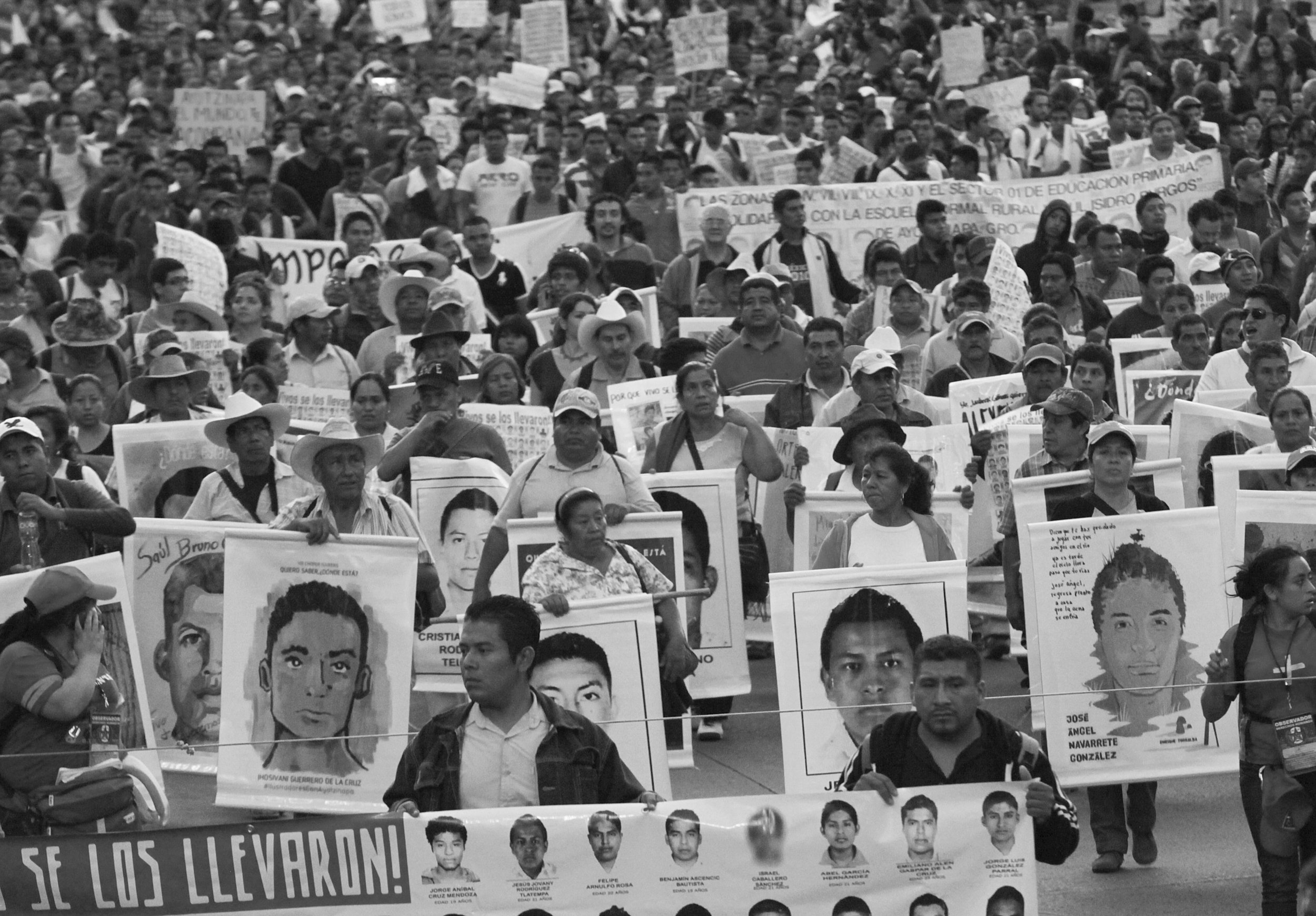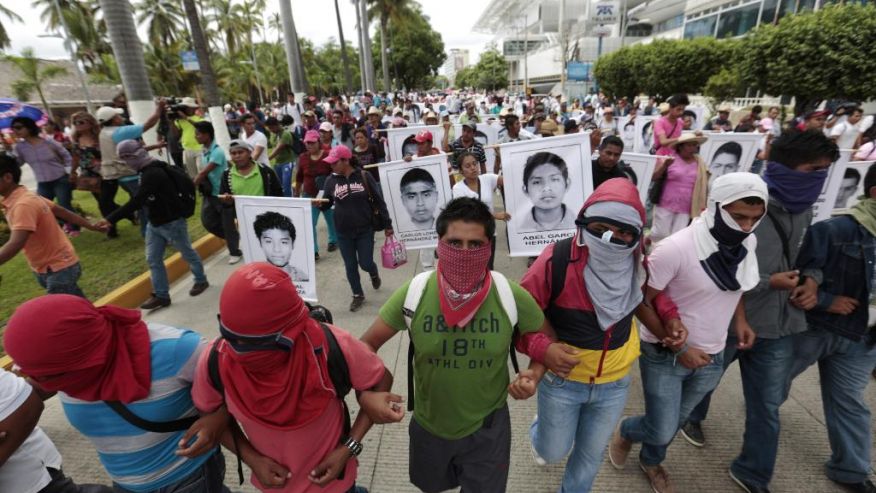Turning a Blind Eye to Our Neighbor’s Slaughter
Eduardo CuevasTHE SANTA CLARANovember 13, 2014
[dropcap]A[/dropcap]side from the occasional newspaper blurb depicting a mass burial or mutilated remains of a woman in the desert, people rarely pay any attention to the devastation in Mexico that has been taking place since the country declared war on its powerful drug cartels in 2006.
Apathetic to the thousands of kidnappings, rapes and murders that plague Mexico on a daily basis, Americans would rather hear about how the Ebola virus is wreaking havoc in the United States (which it isn’t) than see another 30-second story about violence in Mexico.

In September, 43 student-teachers from the Ayotzinapa Normal School — all in their late teens and early twenties — abruptly went missing. This happened after they led multiple confrontations with local officials over ending government corruption on Sept. 26 in Iguala, a town of over 100,000 inhabitants in the Mexican state of Guerrero.
Iguala’s mayor, Jose Luis Abarca, and his wife, Maria de los Angeles Pineda, fled immediately after Mexican press uncovered that the mayoral family had local police apprehend the young pupils and turn them over to the local Guerreros Unidos drug cartel. From there, Mexican officials assumed that the cartel systematically tortured, mutilated and burned the students.
The mass killing garnered international attention when Mexican officials took control of the region, arrested Abarca and Pineda, and began a formal investigation of the abductions. National officials received corroborative testimony from three members of the Guerreros Unidos, who confessed to killing scores of students in Iguala.
Jesus Murillo Karam, Mexico’s attorney general, publicized on Friday that investigators uncovered the remains of some 28 bodies that had been mutilated, burned and thrown in a river near where the killings were thought to have taken place. Murillo Karam also stated that the remains of more corpses were found in adjacent dump sites, where bodies are still being uncovered.

Upon further questioning from reporters about the mass killings in Friday’s press conference, Murillo stated “Ya me cansé,” or “I am fed up.” This has received widespread attention across social media, where Mexicans have used the hashtag “#YaMeCansé” to publicize their frustration over the government’s handling of the massacre.
Nationwide protests and riots have taken place in response to pervasive violence across Mexico and the culmination of findings at Iguala. On Sunday, people lit the entrance to the National Palace on fire in Mexico City. In the capital of Guerrero, Ayotzinapa students and supporters protested and attacked the state’s central government building.
The peoples’ exasperation — not Murillo’s — should be noted. Corruption in Mexico is no surprise, and Americans barely flinch when mass killings occur throughout Mexico. People don’t really seem to care, even if it is next door, despite estimates showing that over 26,000 people disappeared and more than 60,000 people were murdered between 2006 and 2012, according to Human Rights Watch. Not to mention the over 1.6 million people in Mexico who have been displaced.

The lack of international coverage and government stagnation that has taken place in Mexico during the country’s war is shocking. Comparatively, more people are killed in Mexico than by the Islamic State in the Middle East. That is not to say the Islamic State is any less violent than Mexican drug cartels, but it goes to show that there is evil next door to the United States, and we have done nothing to quell it.
As Santa Clara students, we have a duty to fight for social justice. We need to realize that the students massacred in Iguala were our age. They had dreams and desires to better the world, just as our Jesuit community inspires us to do through competence, conscience and compassion.

We must help spark change for our neighbors. We can do this by providing relief for families of those lost, sending letters and emails to the Mexican government through our local Mexican consulate or simply disseminating information through “#YaMeCansé” for the millions of Mexican people who are tired of the violence and corruption that plagues their country.
On campus, we can join the newly formed club Creating Progress at Home, which is devoted to creating long-term solutions for Latin American people by generating self-sustained local projects. The group will hold a vigil, as part of the “Paro Nacional” day of commemoration of the Ayotzinapa students, in front of the Mission Church on Nov. 20 at 10 p.m. Events like the vigil show that the murder of 43 fellow students has humanitarian implications and that we stand in solidarity against malevolence in the world.
Therefore, I challenge our community to take action, to show that we are fed up with vile acts against humanity.
Eduardo Cuevas is a junior English major.